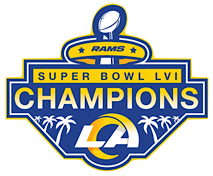- Joined
- Jun 28, 2010
- Messages
- 49,667
- Name
- Burger man

https://www.cbssports.com/nfl/news/...nged-the-outcome-of-rams-patriots-super-bowl/
Here's how new pass interference replay could have changed the outcome of Rams-Patriots Super Bowl
In light of the rule change, a game-changing play from Super Bowl LIII would have also drawn scrutiny and perhaps yielded a different outcome. Specifically: With four-and-a-half minutes to play and the Rams trailing the Patriots 10-3, quarterback Jared Goff threw deep to Brandin Cooks. The call on the field: incomplete pass. But after John Parry, the referee in the game who has since retired and joined ESPN, reviewed the game for possible missed calls he concluded that New England cornerback Stephon Gilmore would have been flagged had the play been reviewed.
"I think video would show that [Cook's] arm was contacted and restricted enough to bring a flag and create a pass interference," Parry said, via ESPN.com. "And that would have been in New England's red zone. So it would have extended the drive and maybe they put points on the board with four minutes to go. That would be a pretty impactful decision."
Now the question becomes how seriously the league plans to enforce pass interference. Will every ticky-tack instance of downfield contact be flagged under review?
"If we're going to go by the letter of the law in pass interference, I think that you're going to have a lot of games decided that way," Vikingscoach Mike Zimmer said from the owners meeting this spring. "These are huge penalties."
Meanwhile, the Canadian Football League could serve as a test case. That league has been reviewing pass interference since 2014 and senior director of officiating Darren Hackwood admitted to ESPN.com that it took several years to figure out what "clear and obvious" meant.
"When we started out, we were trying to call pass interference from the booth the same way we d on the field," Hackwood explained. "But five years later, we're really trying to limit ourselves to protecting against big mistakes. We're not looking for minor contact. One thing we've come to understand is there is a different standard for what's being called on the field and what we would call from the booth. When we finally came to that place, I think we were much better off than when we started. We want to take a very quick look. Is it blatant? Is it clear and obvious? Then we have to overturn. If it's anything deeper than that, we want the ruling to stand."
Here's how new pass interference replay could have changed the outcome of Rams-Patriots Super Bowl
In light of the rule change, a game-changing play from Super Bowl LIII would have also drawn scrutiny and perhaps yielded a different outcome. Specifically: With four-and-a-half minutes to play and the Rams trailing the Patriots 10-3, quarterback Jared Goff threw deep to Brandin Cooks. The call on the field: incomplete pass. But after John Parry, the referee in the game who has since retired and joined ESPN, reviewed the game for possible missed calls he concluded that New England cornerback Stephon Gilmore would have been flagged had the play been reviewed.
"I think video would show that [Cook's] arm was contacted and restricted enough to bring a flag and create a pass interference," Parry said, via ESPN.com. "And that would have been in New England's red zone. So it would have extended the drive and maybe they put points on the board with four minutes to go. That would be a pretty impactful decision."
Now the question becomes how seriously the league plans to enforce pass interference. Will every ticky-tack instance of downfield contact be flagged under review?
"If we're going to go by the letter of the law in pass interference, I think that you're going to have a lot of games decided that way," Vikingscoach Mike Zimmer said from the owners meeting this spring. "These are huge penalties."
Meanwhile, the Canadian Football League could serve as a test case. That league has been reviewing pass interference since 2014 and senior director of officiating Darren Hackwood admitted to ESPN.com that it took several years to figure out what "clear and obvious" meant.
"When we started out, we were trying to call pass interference from the booth the same way we d on the field," Hackwood explained. "But five years later, we're really trying to limit ourselves to protecting against big mistakes. We're not looking for minor contact. One thing we've come to understand is there is a different standard for what's being called on the field and what we would call from the booth. When we finally came to that place, I think we were much better off than when we started. We want to take a very quick look. Is it blatant? Is it clear and obvious? Then we have to overturn. If it's anything deeper than that, we want the ruling to stand."

